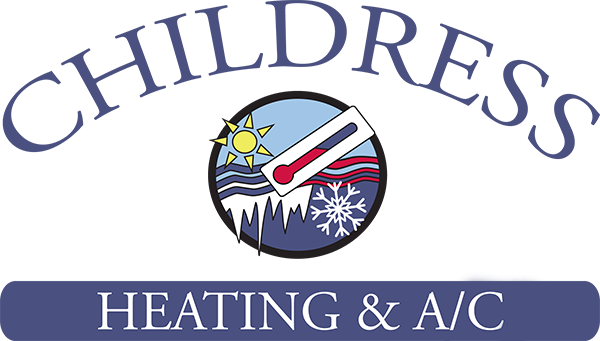
If you’re unsure whether your Fredericksburg house has unhealthy indoor air quality (IAQ), it probably does.
We are indoors a lot. In reality, we’re in a building up to 90% of the time, according to the U.S. Environmental Protection Agency. And the air inside homes could be 2–5 times more contaminated than outdoors, which might create long-term health concerns.
Most Common Causes of Bad IAQ
We’ve put together a list of the most ordinary origins of bad IAQ, the troubles they create and how you can remedy these indoor air pollutants. If you’re worried about the air inside your house, we recommend talking with a professional like Childress Heating & AC about which solutions are ideal for your family.
Volatile Organic Compounds
Volatile organic compounds, or VOCs, are chemicals leaked by common household items.
They’re found in paint and stains along with:
- Furniture
- Carpet
- Building materials
- Cleaning products
- Cosmetics
- Air fresheners
- Candles
When these chemicals accumulate indoors, they might irritate your eyes, nose and throat. They might also lead to headaches and nausea. Regardless of whether your house is in a rural or industrial space, an EPA study found indoor levels of these chemicals can be 2–5 times greater than the air outside.
Always adhere to the manufacturer’s directions when using paint or cleaning supplies. Cracking a window can help fumes dissipate faster.
Air purification systems can also improve your air. This unit partners with your heating and cooling equipment to freshen indoor air. When looking for one, ensure it’s specifically designed to wipe out VOCs.
Dust and Pet Dander
Dust and pet dander can aggravate health problems like asthma and allergies, especially when it constantly gets redistributed by your house’s comfort unit. While you can vacuum more frequently and install an improved air filter, an air filtration system may be a better fit.
This equipment hooks to your HVAC equipment to deliver mighty filtration. Some kinds offer hospital-level filtration for getting rid of particles and bioaerosols.
Lingering Odors
New homes are securely sealed to increase energy efficiency. While this is great for your utility expenses, it’s not so good for your IAQ.
Musty odors can stay around for a greater amount of time because your home is pulling in reduced fresh air. As keeping your windows open all year-round isn’t an option, here are two ways you can make your indoor air smell better.
An air purification system is installed in your ductwork to neutralize odors before they recirculate. Find one with a carbon filter and the ability to break down damaging VOCs. This equipment can also help keep your loved ones healthy by getting rid of most bacteria and common allergy triggers like pollen and mold spores.
A ventilation system takes out musty indoor air and substitutes it with crisp outdoor air. There are two kinds of units (heat recovery and energy recovery), so ask our professionals for more details on which kind is right for your house.
Unsteady Humidity
It’s critical your house’s humidity keeps even. Air that has too much moisture can lead to mold, while dry air can cause respiratory issues.
Our experts suggest 40–50% for the best comfort. To keep yours even, think over getting a whole-home humidifier or whole-home dehumidifier with your heating and cooling unit.
Rather than having to lug a humidifier from room to room, this product delivers consistent humidity throughout your house.
Carbon Monoxide
Carbon monoxide is colorless gas you can’t smell. It occurs when there’s insufficient combustion in fuel-burning units, like gas heating systems, water heaters or fireplaces.
It produces an extreme health risk. In little levels, it can create flu-like sickness like headaches and nausea. It can be lethal in large concentrations.
We advise annual furnace maintenance to double-check your system is running properly. This work allows our specialists to find problems before they begin, including malfunctions that can lead to carbon monoxide leaks.
The best method to keep your home free of carbon monoxide is to put in detectors. These alarms need to be on each floor near bedrooms and living areas.
Improve Your House’s Air Quality with the Childress Heating & AC Specialists
Informed that your home has inferior air quality but not sure how to make it better? Or unsure which solution is a good fit for you? Give our friendly HVAC professionals a call at 540-675-4306 or contact us online now. With free estimates and pro support, we’ll help you find the right equipment for your needs and budget.
